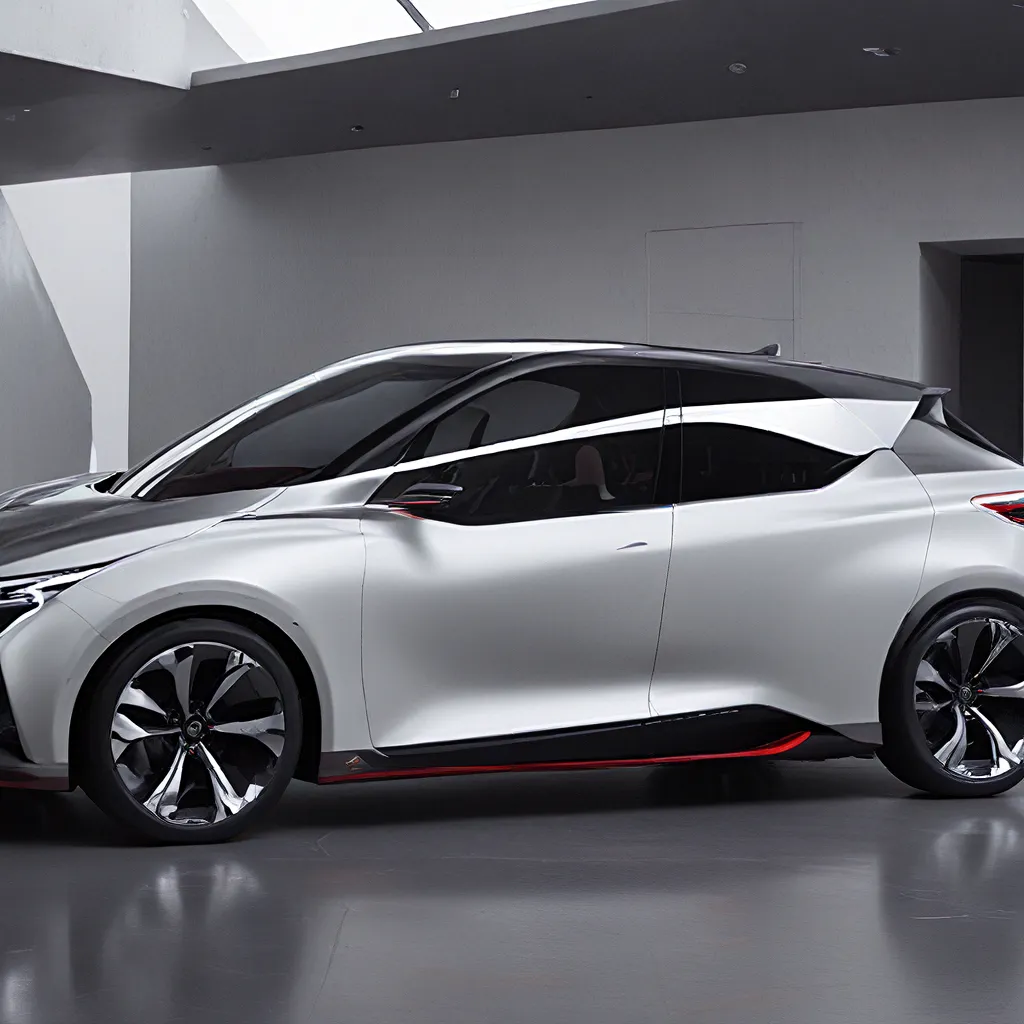
Revving Up Fuel Efficiency: Nissan’s Innovative Solutions
It’s no secret that the automotive industry has long been grappling with the challenge of improving fuel efficiency. As a driver, I’ve always been on the lookout for ways to eke out a few extra miles per gallon, whether it’s by monitoring my driving habits or making upgrades to my car. But when it comes to the engineering side of things, the task of boosting fuel efficiency is a whole other beast. That is, until Nissan stepped up to the plate.
Unleashing the Power of the VC-Turbo
One of Nissan’s most revolutionary breakthroughs in the quest for improved fuel efficiency is the VC-Turbo engine. This marvel of engineering is the world’s first mass-produced engine that can freely change its compression ratio, the all-important parameter that determines an engine’s efficiency and power output. As Nissan explains, this allows the VC-Turbo to deliver the perfect balance between low fuel consumption and high power – two factors that are typically at odds with each other.
Imagine an engine that can adapt on the fly, seamlessly transitioning from fuel-sipping efficiency to performance-oriented power as the driving conditions demand. That’s the VC-Turbo in a nutshell. Currently found in the Infiniti QX50 and Altima models, this groundbreaking engine is the result of Nissan’s relentless pursuit of technological innovation.
But the VC-Turbo’s party trick doesn’t end there. Nissan has also applied its Mirror Bore Coating technology to this engine, further enhancing its efficiency by reducing mechanical losses and weight. Instead of using a traditional cast-iron cylinder liner, this innovative approach uses a sprayed-on molten iron coating on the cylinder walls. The result? A more streamlined, lightweight engine that delivers improved fuel efficiency without sacrificing performance.
Shifting Gears with the Continuously Variable Transmission
Of course, the engine is only one piece of the fuel efficiency puzzle. Nissan has also placed a significant emphasis on the transmission, which plays a crucial role in optimizing power delivery and fuel consumption. Enter the Continuously Variable Transmission (CVT), a technology that Nissan has been championing for years.
Unlike traditional stepped gearboxes, the CVT can seamlessly adjust its gear ratio to keep the engine operating at its most efficient speed, whether you’re crawling through city traffic or blazing down the highway. This smooth, continuous adjustment allows the engine to deliver both powerful acceleration and impressive fuel economy, no matter the driving conditions.
Nissan has been quick to leverage the benefits of CVT technology, implementing it across a wide range of models, from compact city cars to midsize sedans. It’s a testament to the company’s commitment to improving efficiency without compromising the driving experience.
Electrifying the Future: Nissan’s Hybrid and EV Innovations
Of course, the quest for fuel efficiency doesn’t stop at the internal combustion engine. Nissan has also been at the forefront of electrification, with innovative hybrid and electric powertrain solutions that are reshaping the future of automotive mobility.
Take the Smart Simple Hybrid system, for instance. Found in Nissan’s new Dayz model, this clever hybrid setup captures kinetic energy through regenerative braking and uses it to assist the engine during acceleration. By pairing a high-capacity lithium-ion battery with a motor-generator belt, the Smart Simple Hybrid system delivers a significant boost in fuel efficiency without compromising the driving experience.
But Nissan’s electrification efforts don’t end there. The company has also developed the cutting-edge e-POWER system, which combines a gasoline engine with a high-power electric motor. In this setup, the gasoline engine acts as a generator, providing electricity to power the vehicle’s electric drive system. The result? Exceptional fuel efficiency, especially in urban environments where frequent stop-and-go driving can really take a toll on a traditional internal combustion engine.
Lightweighting: Shedding Pounds for Efficiency
But Nissan’s commitment to fuel efficiency doesn’t stop at the powertrain. The company has also been at the forefront of weight reduction, a critical factor in improving overall vehicle efficiency.
Nissan has developed a range of ultra-high tensile strength steel alloys that allow for thinner, lighter components without compromising structural integrity. These materials, which include the world’s first 12 GPa ultra-high tensile strength steel with high formability, have been used in models like the Infiniti Q50, Murano, and QX50.
The benefits of this lightweight construction are twofold: not only does it reduce the overall weight of the vehicle, thereby improving fuel efficiency, but it also enhances driving performance by lowering the car’s center of gravity. It’s a win-win for both efficiency and driving dynamics.
Navigating the Road Ahead: Intelligent Transport Systems
Of course, Nissan knows that improving fuel efficiency isn’t just about what’s under the hood. The company recognizes the critical role that infrastructure and traffic conditions play in optimizing energy consumption. That’s why Nissan has been at the forefront of Intelligent Transport Systems (ITS) development, working to create a more efficient and sustainable transportation ecosystem.
Through the SKY Project, Nissan has been collecting real-world data from its customers to better understand the impact of traffic congestion and driving patterns on fuel efficiency. By leveraging advanced communication technologies, ITS can help alleviate congestion, improve safety, and ultimately boost the overall energy efficiency of the transportation network.
It’s a holistic approach that goes beyond the confines of the individual vehicle, recognizing that true fuel efficiency gains require a collaborative effort between automakers, infrastructure providers, and policymakers. And Nissan is leading the charge, determined to conquer the fuel system challenges of the 21st century.
Powering the Future of Automotive Efficiency
As I look back on Nissan’s impressive array of fuel-saving innovations, I can’t help but feel a sense of excitement for the future of the automotive industry. From the groundbreaking VC-Turbo engine to the game-changing e-POWER system, the company has consistently pushed the boundaries of what’s possible when it comes to improving efficiency and performance.
But Nissan’s commitment to sustainability doesn’t stop at the vehicle level. By investing in Intelligent Transport Systems and collaborating with industry partners, the company is working to create a more holistic, eco-friendly transportation ecosystem. It’s a comprehensive approach that recognizes the importance of addressing fuel efficiency challenges from all angles.
So, the next time you slide behind the wheel of a Nissan, take a moment to appreciate the engineering prowess that went into making your ride more efficient and responsive. Because at the heart of Nissan’s innovative spirit lies a relentless drive to conquer the fuel system challenges of today and pave the way for a more sustainable tomorrow. Who knows, maybe your daily commute could one day be the envy of every eco-conscious driver on the road.
Remember, you can always visit nissan2022.com to stay up-to-date on the latest advancements in Nissan’s quest for fuel efficiency and performance. The future is bright, and Nissan is leading the charge.






